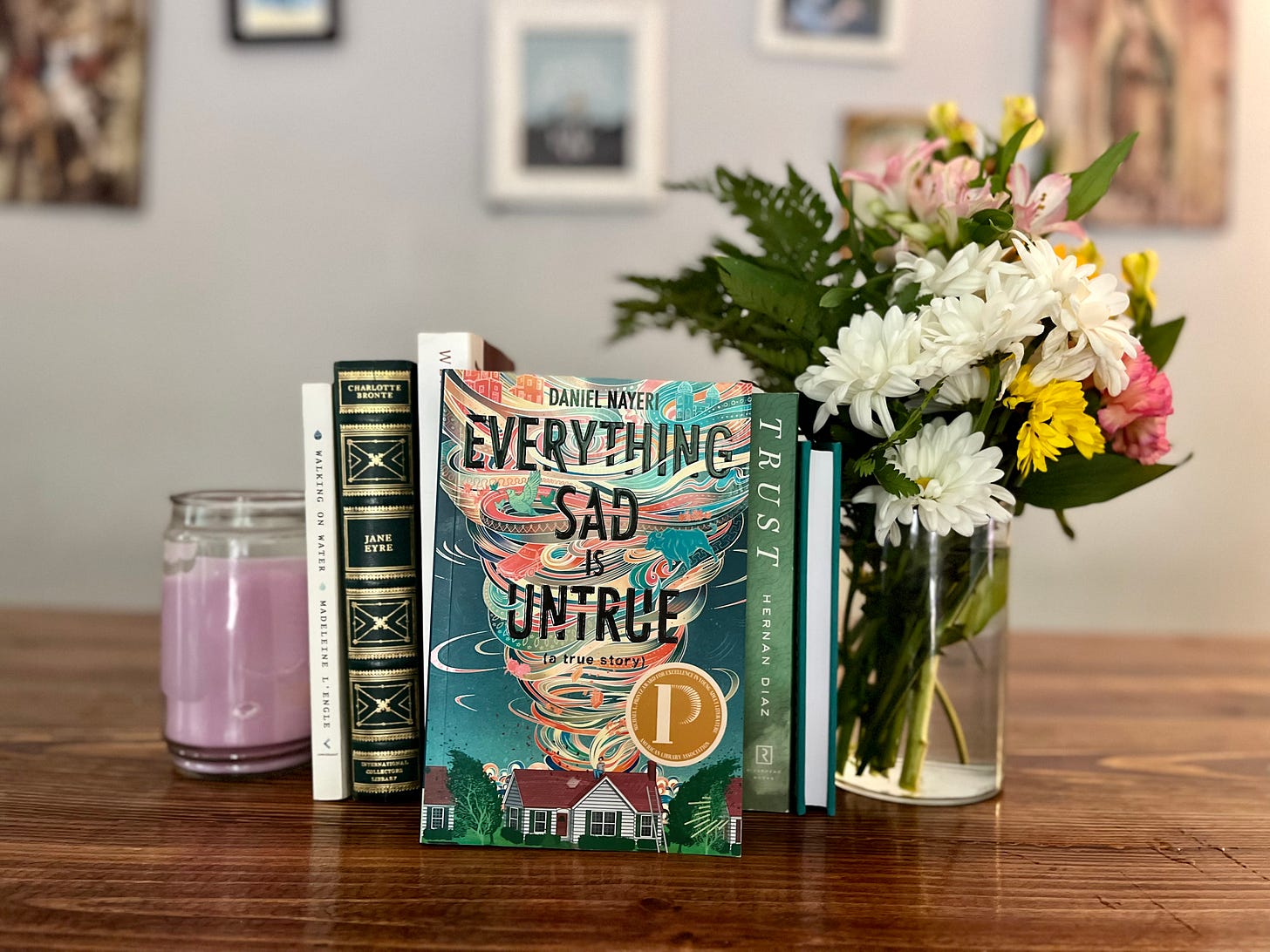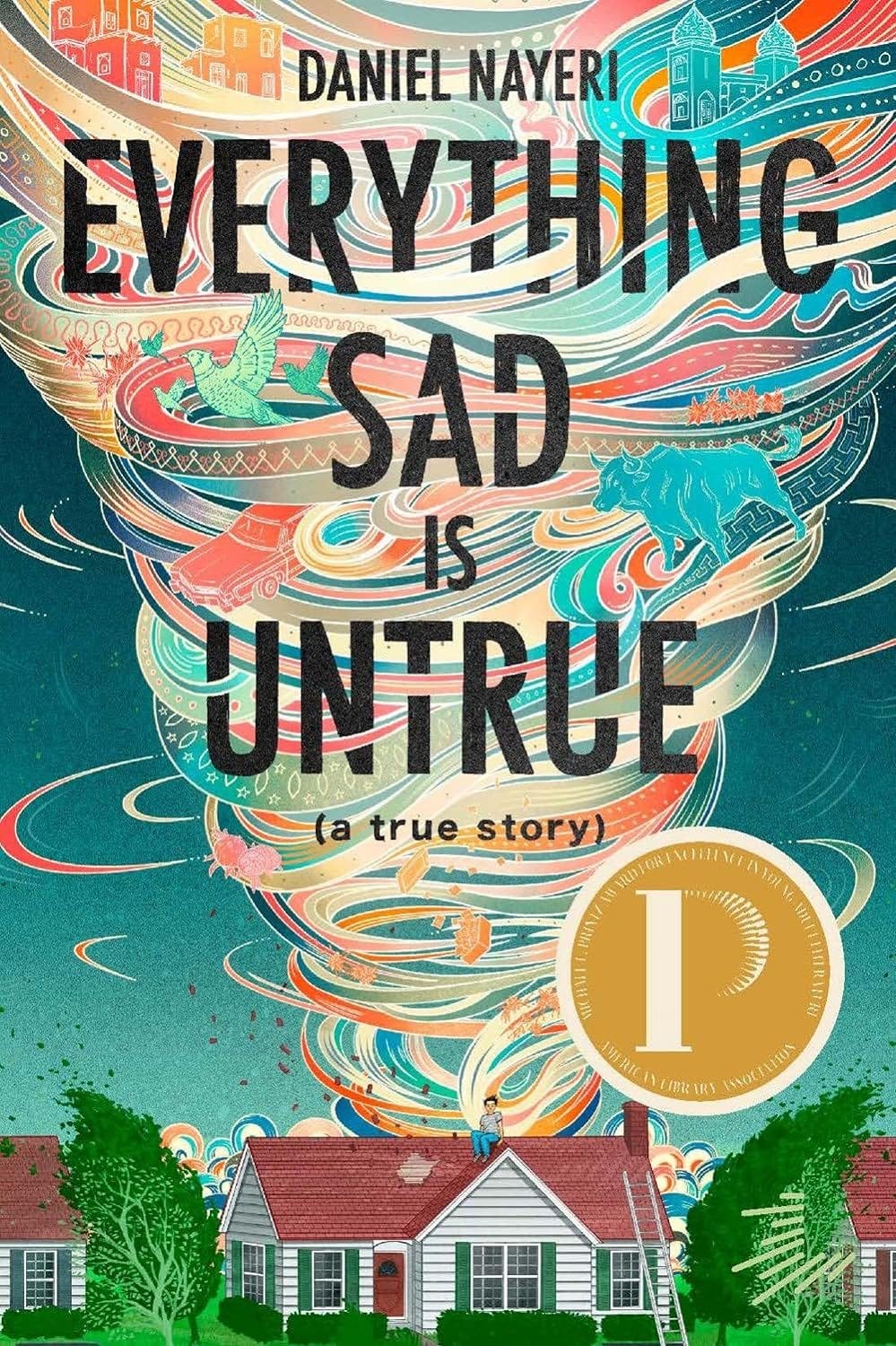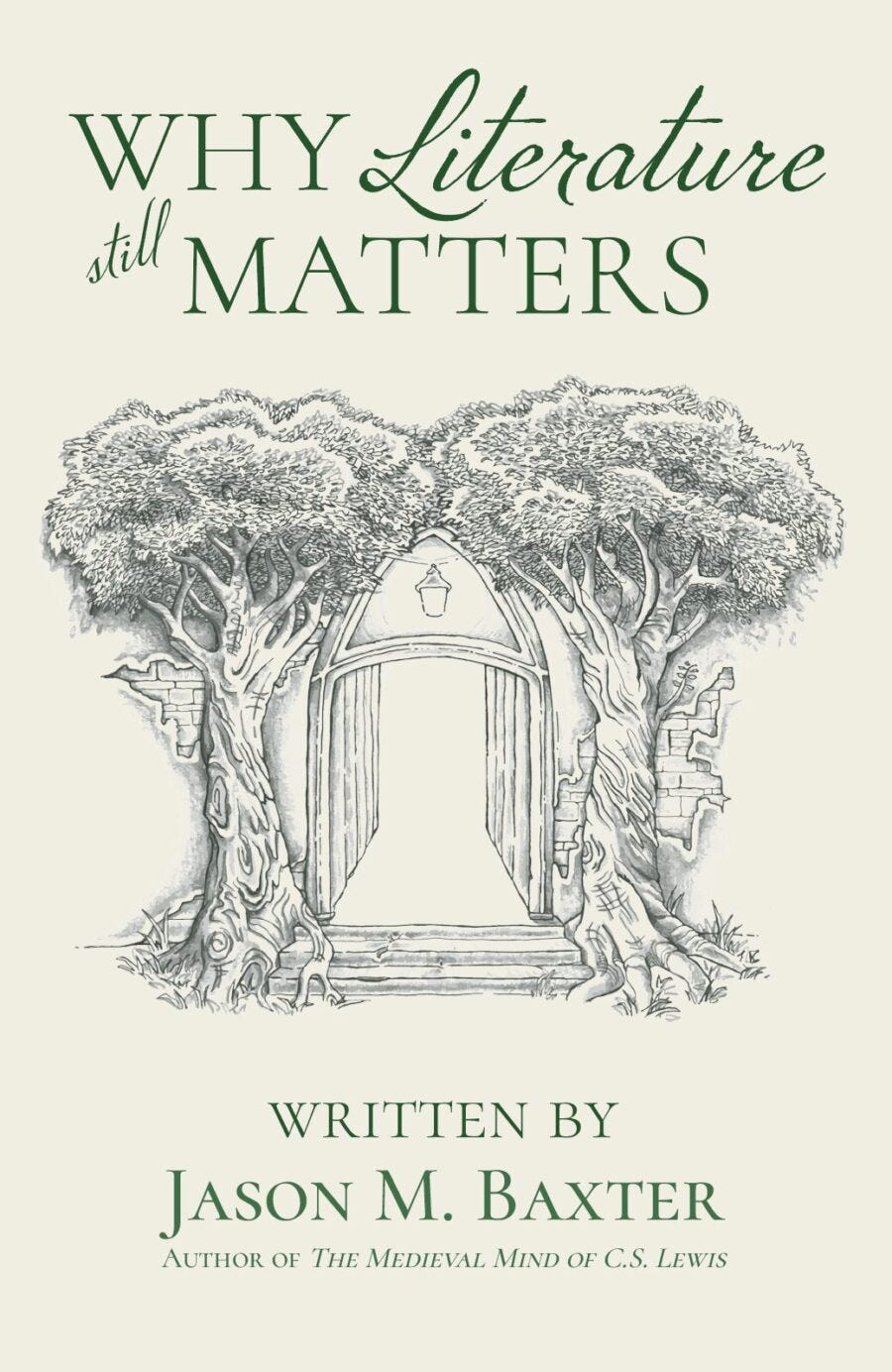Everything Sad is Untrue (pgs 119-238)
in which we understand more fully the title of the story
You know every memory I have of all my grandparents and aunts and uncles and cousins. You’ve got them all.
You can probably count them yourself. And they’re as fuzzy to you as they are to me. You won’t clench them like I do, that’s for sure. To you, they might even be junk.
In the movies, kids get fishing trips with the grandpas, and grandmothers give them hugs.
Maybe my memories are only worth a couple peach pits to you.
But you’ve got them now. All the pieces are in place for you to understand what happened and how we ended up in Oklahoma….
….It’s not so hard to believe if you’ve got the memories I’ve got. (137)
Hello Readers,
I hope that you have had another lovely week reveling in stories and myths from the other side of the world. Last week I left the Read Along Guide asking where this story was going to go. This week it seems like this chunk of reading has at least started to answer that question.
This week we learned about Daniel’s life in Oklahoma, his grandma Ellie, his trip to England, a lot about poop, and his sister and mother’s conversion to Christianity. Now we know why they came to Oklahoma. This book is expertly crafted to lead us to this moment at the perfect time.
A Quick Note on Structure
I split this book up into 3 sections for the Read Along Guides pretty arbitrarily. However, I have been happy with how it has turned out. Last week’s reading ended with Daniel killing the owl by accident (which seemed appropriate when the whole book starts with him feeling responsible for killing the bull). This week the section ended with the tornado and the explanation for the title of the story, which I’ll get to in a moment.
However as I was preparing this reading guide I discovered the direct middle of the book. At first I thought it was right after Daniel’s sister almost loses her finger and then sees an angel. But that is actually 4 pages or so before the exact middle. I liked that as the middle because it does feel like it is where the whole story shifts, however I decided to turn a few pages and see what the actual middle was. Here is what I found….
If you wanna know how rich somebody is, just look at what they eat and how they poop. Everybody does both… (174)
If you think that is too random, then hear me out.
Potty Humor
Okay, this is the story…Get yourself ready. Go poop now if you have to, cause I won’t pause the movie if you have to go in the middle. (159)
You know why I told you all those poop stories. Because food and poop are the truest things about you. (231)
So what is with all of the poop (and pee) stories? Are these totally random because Daniel is young and young boys like to talk about poop? Maybe. Partly. But I don’t think that is a completely true or satisfying answer.
The poop (and pee) stories all start being told around the same time as the conversion story is taking place. This at first seems to be a random tangent or even a needed distraction before getting to some of the harder parts of the story to tell, which I think is interesting in its own way.
But, more than that I think there is a deep connection that Daniel even alludes to. Poop and faith are so personal. If you want to know about someone, look at what they eat and how they poop, Daniel tells us. Faith and poop start inside. They both come from what we take in. But they will both eventually come out. You can’t hide either one.
They are both “unclean” in different ways in the different places. Daniel thinks the way American’s poop is gross and weird. The Americans think that not sitting on a toilet is gross and weird. Similarly in Iran being a Christian is “unclean” and in America being from the Middle East is “unclean.”
Both of these similarities are so relevant to the questions that everyone wants to ask…Why did Sima become a Christian? Why didn’t she just keep it a secret?
Important Questions to Ask
But I don’t have an answer for them. How can you explain why you believe anything?…. “Because it’s true.” Why else would she believe it?
Which brings me to the next thing I’d like to point out from this section. All of the adults ask the questions above. And Daniel answers those questions with very firm answers. She became a Christian because it is true. She met Jesus. What else was she supposed to do? How can you keep something like that a secret? She wanted everyone to have what she had! Jesus is more important than any amount of money, job, or importance. She couldn’t stay in Iran because she had to protect her children. These answers are all obvious to Daniel.
However, Daniel asks another question. Why didn’t his dad come with them? That is the question that haunts him and that is the question he doesn’t seem to have the answer to. I think contrasting these questions is an important aspect to the story that we shouldn’t pass over.
Trinitarian Story Structures
England was the first time I tasted peanut butter. My sister almost lost a finger. And my mom met Jesus. All three were life-changing. (160)
Another Thing I Couldn’t Help But Notice (a la
, A Swim in the Pond in the Rain) was all of the times the stories were told in groups of threes. I noticed it in this section a lot, but then when I started to think about it I realized it has been happening through the whole book. There are also other groups of three as well. I’m going to list some that I noticed, but I would love you to add any you find in the comments…Pee in the suitcase store, sister’s finger, conversion
poop like chicken, poop like sloppy joe, actual poop emergency
Daniel’s bloody nose, threats, caught (his mom’s story of returning to Iran)
three men who threatened to beat Sima
three miracles to escape Iran (papers, police, plane)
three animals Daniel feels responsible for killing (Bull, owl, sheep sheep)
three steps to nailing down a shingle (plus holding on for dear life)
(A True Story)
I loved the meditation on telling true stories versus telling made up stories that Daniel has in this section. He alludes to this problem in the first section as well by adding details to stories to make them a better or fuller story. So this isn’t the first time he talks about it. But, I first started thinking about it when he mentions that he doesn’t know what happened to his mom when she was “arrested.” He says, “Scheherazade never had this problem.”
First, Scheherazade was making the stories up. She could tell whatever story she wanted. We don’t get that luxury in our real life stories. We have to use the facts that we know. And when we get to the end of that information it is hard to know what to do. We see Daniel struggle with that through the whole story. He wants to tell the true story. Sometimes some made up facts help him get there. Sometimes he isn’t sure.
The other reason telling real life stories is complicated is because the maker of the stories actually knows the people involved. The truth can be painful. And in this book we have a young narrator who might not be ready to process it yet. Daniel hits this point when his mom is captured. “You don’t know what you don’t know,” he says. I think this instance illustrates both points.
This thought process makes me think that Daniel (the kid in the book) is using this whole book to help himself process and make sense of his life. Everything sad really will come untrue if he can tell his way out of the story. Or something like that.
Mr. Sheep Sheep
The episode with Mr. Sheep Sheep is structurally amazing! Daniel (the author) had me thinking all the right thoughts in all the right places. So this section is just going to be an ode to a well told story.
By the end of the story we know that Mr. Sheep Sheep is actually Daniel and the Shepherd is actually his dad. A good shepherd never leaves his sheep. His sheep can’t survive without him. “How could a shepherd leave a sheep to die in the airport parking lot?” turns into “Why didn’t my dad come with us?”.
Also we have the fact that they can’t bring Mr. Sheep Sheep because the airport will think they are smuggling drugs also connects the whole story to his dad. His dad had already smuggled drugs to England in a fancy suitcase. And then at the end of the story he says that Mr. Sheep Sheep is the third animal he has killed.
This last fact has me thinking that the memories might not be as clear as he thinks. None of the three animals died directly because of him. Which maybe makes it even harder to process. I love what Nayeri (the author) is doing with these stories.
The Title Explained
“Gandalf! I thought you were dead! But then I thought I was dead myself. Is everything sad going to come untrue? What's happened to the world?"
A great Shadow has departed," said Gandalf, and then he laughed and the sound was like music, or like water in a parched land; and as he listened the thought came to Sam that he had not heard laughter, the pure sound of merriment, for days upon days without count.”
-J.R.R. Tolkien (The Return of the King)
We would be remiss to leave this section of the book without at least touching on the title of the story. Right before the tornado comes Ray finds Daniel reading Lord of the Rings, more specifically The Return of the King, which is where the title gets its name. Daniel is actually reading that very scene…
One night really late- so late it was early- I was reading the part where Sam the hobbit sees Gandalf come back and it’s like seeing his grandpa return from the land of death and memories. And his grandpa laughed, and it says it sounded like “water in a parched land.” I could imagine exactly what the feeling must have been like, but not what it was. Does that make sense?
And Sam thinks maybe all the sad parts of the adventure will come untrue, now that this one has. And the beautiful part is that they do. (232)
First, I just love this scene in Lord of the Rings and then I love Daniel’s connection to it, especially the fact that he brings up his grandpa who he dearly misses. Then by the end of the chapter he is praying to a God who listens and speaks to see his grandpa again. And he says God heard him. How beautiful to think about the resurrection of the dead from the eyes of young Daniel with Gandalf in the background.
Right after reading this scene Ray comes to get Daniel to go fix the shingles on the house during the tornado. He doesn’t try to explain the book to Ray because there is too much backstory, which makes me think that scene is an objective correlative for this whole book. But Daniel does tell us the backstory. He tells us the story and shares the memories because we are his friends.
While they are fixing the roof Daniel remembers a phrase in Farsi that he is afraid he might forget…
That was when I realized I had to write down the memories and myths and the legends- and even the phrases and jokes. Or I’d lose everything. Maybe even the recipes.
But first I had to climb back down the ladder. (236)
I love that the title of the book and the reason for writing the book all happen during this tornado. And a tornado must be what it is like for a young boy to have gone through the life Daniel has gone through and how it feels to process all of those emotions. And I like that he is gifting that sympathy to us as readers by sharing his stories. We are now all busy with him “eating the tornado.”
Dear reader, you have to understand the point of all these stories. What they add up to. Scheherazade was trying to make the king human again. She made him love life by showing him all of it, the funny parts about poop, the dangerous parts with demons, even the boring parts about what makes marriages last.
Little by little, he began to feel the joy and sadness of others.
He became less immune, less numb, because of the stories.
And what about you? (237)
Quotes Before We Go
Every side of an explosion looks different. If you’re looking at a bull collapsing on the ground and I’m beside you looking at it, we’re seeing two bulls die, two rivers of blood, two everything. That’s why there is an infinite labyrinth of stories, even in just one family. (120)
Does writing poetry make you brave? It is a good question to ask. I think making anything is a brave thing to do. Not like fighting brave, obviously. But a kind that looks at a horrible situation and doesn’t crumble. (122)
It’s beautiful.
How badly we all want love.
It’s tragic.
How bad we are at searching for it. (168)
Miracles are absurd by definition.
If they weren’t, they’d just be odd things that happened. Improbable things.
But while miracles are impossible, they aren’t coincidences. They’re knives that cut into our reality. And they’re messy and weird… (172)
I supposed if you don’t want to believe it, all you have to do is say my sister wanted to be like Ellie, or she wanted to harass my mom. Both of which are true.
Or she was dreaming.
Or the pain medication for her finger made her brain wibbly.
Miracles are easy to explain away. (172)
A Few Questions
Now we know why they moved to Oklahoma, I think in the next section we might find out how….How will this information affect the rest of the story?
What are your emotional reactions to the story?
How has this story changed you so far?
Are there aspects of the story telling that you think have a deep effect on you?
What age would you let your kids (if you have them) read this book?
The truth turns into a story when it grows old. We all become stories in the end.
-Noel from This is Happiness (by Niall Williams)
Everything Sad is Untrue Reading Schedule
Monday, June 16th- ep. 60: Intro to Everything Sad is Untrue w/ Heidi White
Wednesday, June 18th: Introduction and Schedule (you are here)
Wednesday, June 25th: pgs. 1-119
Wednesday, July 2nd: pgs. 119-238
Wednesday, July 9th: pgs 238-351 (but don’t forget to read the Author’s Note at the very end)
Monday, August 4th: ep. 67: Revisiting Everything Sad is Untrue
Until next time, keep revisiting the good books that enrich your life and nourish your soul.
What We’re Reading Now/Next:
July
Everything Sad is Untrue by Daniel Nayeri
August
Northanger Abbey by Jane Austen
September
Why Literature Still Matters by Jason Baxter
A Few Reminders:
If you are wanting to get in on the in person or virtual community please contact us!
We have turned on paid subscriptions which will allow you to support the work we are doing here as well as receive Read Along Guide PDFs each month and voice recordings of the Read Along Guides.
If you would like to make a small contribution to the work we’re doing here at Reading Revisited, we invite you to do so with the Buy (Us) a Coffee button below. We so appreciate your support!
*As always, some of the links are affiliate links. If you don’t have the books yet and are planning to buy them, we appreciate you using the links. The few cents earned with each purchase you make after clicking links (at no extra cost to you) goes toward the time and effort it takes to keep Reading Revisited running, and we appreciate it!










The thing that struck me in this section was the discussion of religion. In particular, I was taken by the discussion of what type of god you wanted, one who listens or one who speaks. It seems this dichotomy has existed through all of time. I especially like the statement on page 217: Love is empty without justice. Justice is cruel without love. He concludes correctly that God should be both. It seems to me that there is conflict because so many people believe one or the other.